Dehydration Can Be a Sneaky Cause of High Blood Pressure — Here’s How To Replenish Fluids Fast
Find out how to make your own electrolyte drink mix for pennies
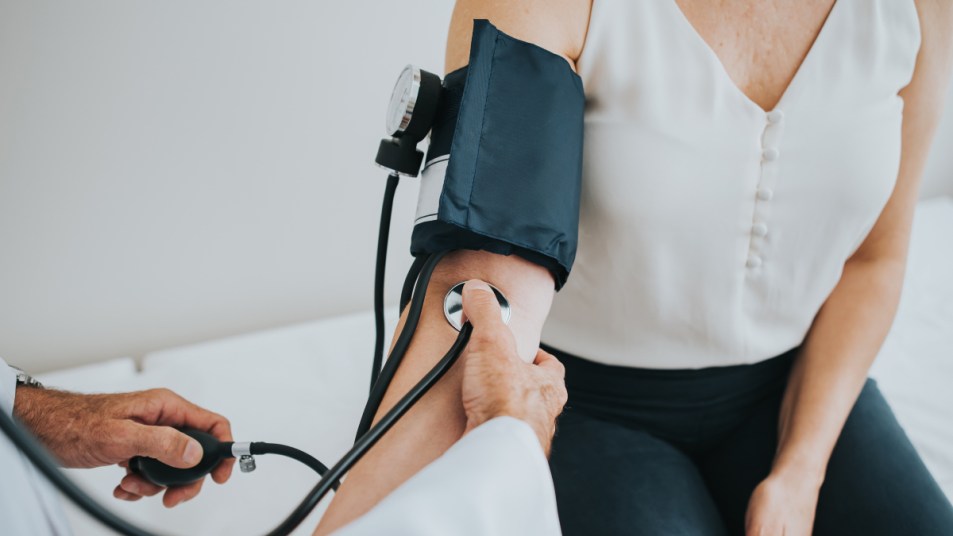
Between hectic days and a to-do list a mile long, it’s all too easy to let something seemingly minor like remembering to refill your water bottle slip to the back of your mind. But it turns out even low-grade dehydration, which can happen year-round, does more than just leave you feeling thirsty. Research reveals it can impact your heart health, too . And that begs the question: Can dehydration cause high blood pressure? Doctors say yes, but the link isn’t so straightforward. Find out how your body’s fluid levels can impact your blood pressure, plus the best ways to restore hydration in a hurry.
The importance of staying hydrated
Dehydration, which is sometimes mistaken as just a feeling of thirst, is actually a more complex issue that affects your body’s ability to function optimally.
“Dehydration occurs when your body loses more water than it takes in,” explains Joel Evans MD, Chief of Medical Affairs at the Institute for Functional Medicine. “Considering that two-thirds of our body is made up of water, staying hydrated isn’t just beneficial – it’s essential. Water does so much. It keeps our joints moving smoothly, our eyes moist, helps with our digestion, gets rid of body wastes and keeps our skin healthy. You need it to stay alive, which is why we die from thirst before starvation. That’s how much we need water to live.” (Even mild dehydration can leave you waking up dizzy, too.)
Common causes of dehydration
Dehydration can be caused by everything from not drinking enough water (especially when you’re sick) to losing fluids through heavy sweating during exercise or in warm weather. Some medications, including those used to treat high blood pressure, heart failure and diabetes, may contribute to dehydration. Not eating enough fruits and vegetables, which are full of water and other nutrients, can add to the problem, too. Additionally, drinks like coffee and alcohol act as diuretics, increasing fluid loss and potentially leading to dehydration.
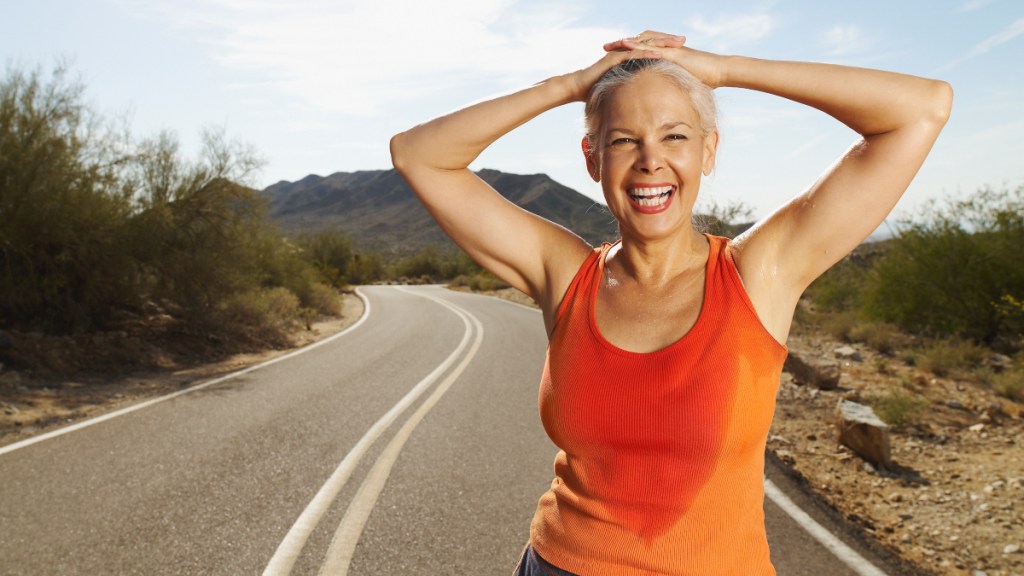
“Each time you use the bathroom, sneeze or even just breathe, you’re losing fluids,” reveals Mache Seibel, MD. “Just the act of living causes the loss of liquids. That’s why people need to consciously hydrate.”
However, thirst isn’t always a reliable indicator of the body’s need for water. Dr. Evans notes that, particularly for older adults, the sensation of thirst can become less acute. That means we may not feel the need to drink until we’re already dehydrated.
Menopause also brings unique hydration challenges, with hormonal shifts impacting the body’s water retention and diminishing the natural feeling of thirst. It can also result in more frequent urination, which exacerbates fluid loss. “Additionally, hot flashes, a frequent symptom of menopause, can cause increased sweating, further heightening the risk of dehydration,” Dr. Evans adds.
Symptoms of dehydration and when to seek help
The symptoms of mild dehydration are likely familiar. Your mouth is dry, your urine is darker and has a strong odor and you might also be urinating less frequently, says Dr. Evans. As dehydration progresses, more alarming signs can appear. These can include feeling lightheaded or dizzy, experiencing extreme fatigue, having dry lips and eyes and a noticeable decrease in urine output. “You can still easily recover at that point simply by taking in more fluids,” assures Dr. Evans.
Symptoms of severe dehydration include confusion, persistent dizziness, not urinating for over eight hours, a weak or rapid pulse and in some cases, loss of consciousness or seizures. In those cases, Dr. Evans advises seeking medical attention immediately. (See how dehydration can also cause urine that smells like popcorn, and the easy ways to fix it.)
Dehydration can be acute or chronic — both are more common than you may think and can be a cause of high blood pressure. In fact, chronic low-grade dehydration affects 75% of Americans. (Learn how staying hydrated can help prevent heatstroke.)

Can dehydration cause high blood pressure?
When you’re parched, your body’s total blood volume decreases, forcing the heart to work harder. Although dehydration is not a primary cause of chronic high blood pressure, also known as hypertension, it can exacerbate the condition in the short term, Dr. Seibel says.
While it’s true that dehydration can cause high blood pressure, its influence on heart health is intricate. Initially, dehydration may lower blood pressure due to reduced blood volume. Yet, if prolonged, the body’s response to counter this drop is by elevating blood pressure, notes Dr. Evans. (Click through to see what drinks lower blood pressure.)
“Your blood becomes thicker and more concentrated, and your blood vessels constrict and narrow,” Dr. Seibel explains. “This happens so your heart can generate enough pressure to circulate blood throughout your body. Dehydration can lead to a temporary spike in blood pressure until you rehydrate.”
This fluctuation underscores the importance of keeping an eye on your blood pressure, the measure of the force with which blood pushes against the walls of your arteries. High blood pressure often presents no obvious symptoms, yet it’s a major health concern, says Dr. Seibel.
“Hypertension is known as the silent killer because we are mostly unaware when our blood pressure is dangerously high unless it’s being monitored ,” says Dr. Seibel. “It’s dangerous because exerting pressure on your organs can ultimately lead to serious conditions like kidney disease, heart disease and stroke.” (See more easy ways to prevent heart disease).
What’s considered normal blood pressure?
Healthy blood pressure is typically defined as having a systolic pressure (the top number measured when the heart beats) below 120 mmHg, and a diastolic pressure (the bottom number measured between heartbeats) below 80 mmHg — so under 120/80 mmHg. This ensures that blood circulates effectively, delivering oxygen and essential nutrients throughout the body, says Dr. Evans.
When blood pressure reaches or exceeds 130/80 mmHg, it enters the realm of hypertension. At these elevated levels, it can be a precursor to serious conditions like heart attacks and strokes. Dr. Seibel advises annual blood pressure checks and more frequent monitoring if levels stray significantly from the ideal 120/80 mmHg.
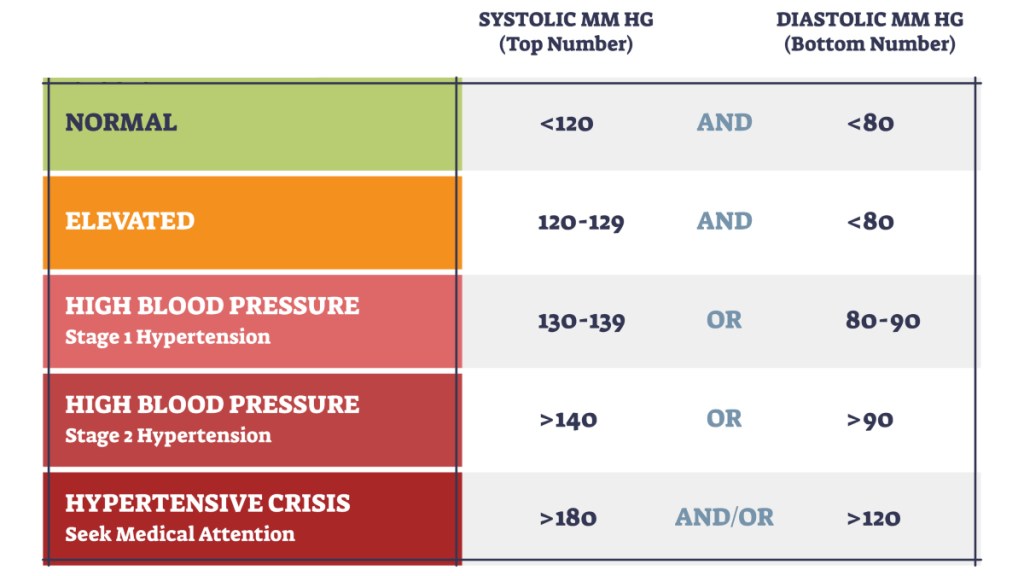
How to cure dehydration fast at home
Knowing that dehydration can cause high blood pressure makes staying on top of your fluid levels all the more important. Whether you’re currently dehydrated or simply looking for ways to ward off future bouts of dehydration, these smart tips can help. (Click through to see more blood pressure hacks to lower your readings naturally.)
1. Grow a virtual plant
For many of us, the best approach to avoiding dehydration is simply drinking more H2O. Yet up to 80% of women forget to drink enough water on busy days. Dr. Seibel advises aiming for at least eight 8-oz. glasses daily to maintain good hydration. “But that’s just the baseline,” he notes. “Depending on factors like living in a hot climate, heavy sweating or engaging in more physical activity, you might need up to 12 glasses a day.”
Dr. Seibel simplifies his hydration routine by filling a large water bottle every morning, aiming to finish it by the end of the day. Plus, he makes a point of drinking water with each meal. What else can help? Downloading a free app that sends you hydration reminders throughout the day. One to try: Plant Nanny Water Tracker (for Apple and Android), which waters a cute plant in your virtual garden each time you drink. (Learn how a motivational water bottle can help you drink up, too.)
2. Supercharge your sip
Adding electrolytes such as sodium, potassium and magnesium to your glass of water helps replenish lost fluids. However, not all products are created equal. Dr. Evans warns against those with excessive sugar or artificial ingredients, which can diminish the hydration benefits. He suggests seeking options with a balanced electrolyte profile, such as Hydrate from NutriDyn (Buy from NutriDyn, $27.65).
Also smart: Stirring ¼ tsp. of salt into a tall glass of water in the morning and afternoon. This inexpensive sipper may increase your natural thirst response to keep you drinking throughout the day. In fact, Yale findings suggest the strategy ups fluid intake enough to enhance hydration 69%. For best benefits, opt for Himalayan pink salt. It owes its rosy color to electrolyte minerals which further optimize your body’s fluid balance. (See why boosting your fluid levels is a top sunburn self-care remedy, too.)
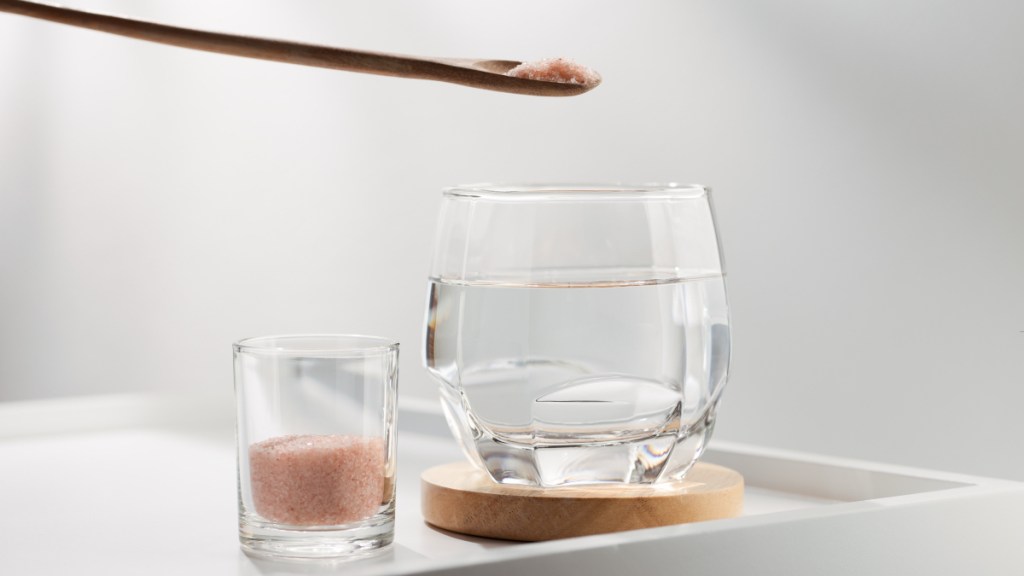
3. Sip a chamomile latte
If you’re craving something warm, Dr. Evans recommends chamomile tea. “It’s caffeine-free, rehydrating and the elderflower in it helps regulate body temperature,” he notes.
And you’ll make it even more hydrating if you add a splash of milk to your cuppa. Research in Food and Nutrition Sciences suggests that milk, which naturally contains electrolytes, may be even more hydrating than plain water.
4. ‘Eat’ your water
Drinking up isn’t the only way to ward off dehydration that can cause high blood pressure. You can also up your water intake with juicy produce. Water-rich foods include cucumbers, tomatoes, watercress, apples, celery, lettuce, watermelon, peaches, broth and zucchini.
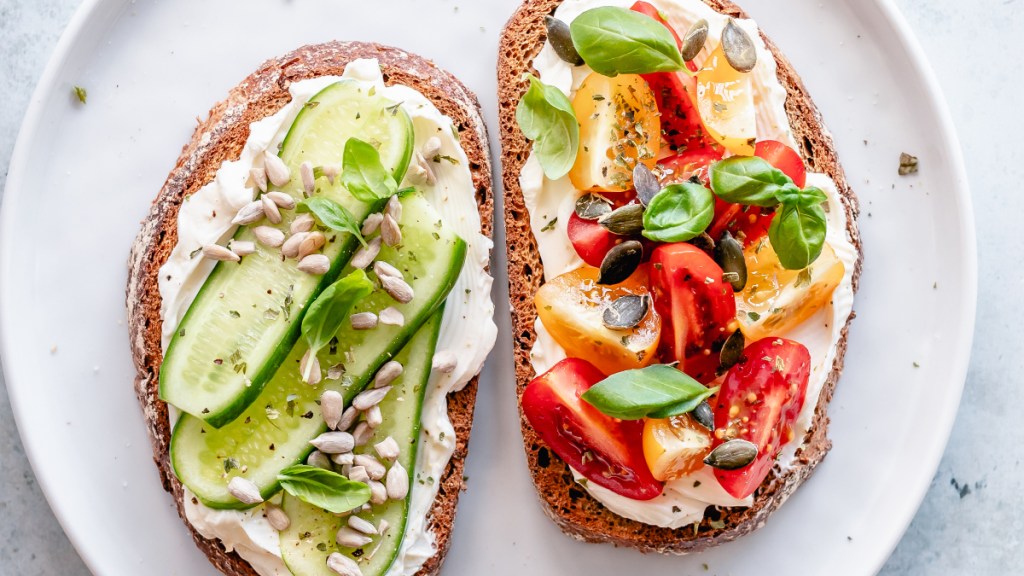
In fact, a study in the Journal of Applied Physiology found that classic chicken noodle soup is 63% more hydrating that a store-bough sports drink. Credit goes to its combination of carbohydrates, sodium and amino acids, which enhance fluid absorption in the intestines.
For more natural ways to keep your blood pressure in check:
20 Easy Ways to Lower Your Blood Pressure Naturally — No Diet or Gym Required
This content is not a substitute for professional medical advice or diagnosis. Always consult your physician before pursuing any treatment plan.

















